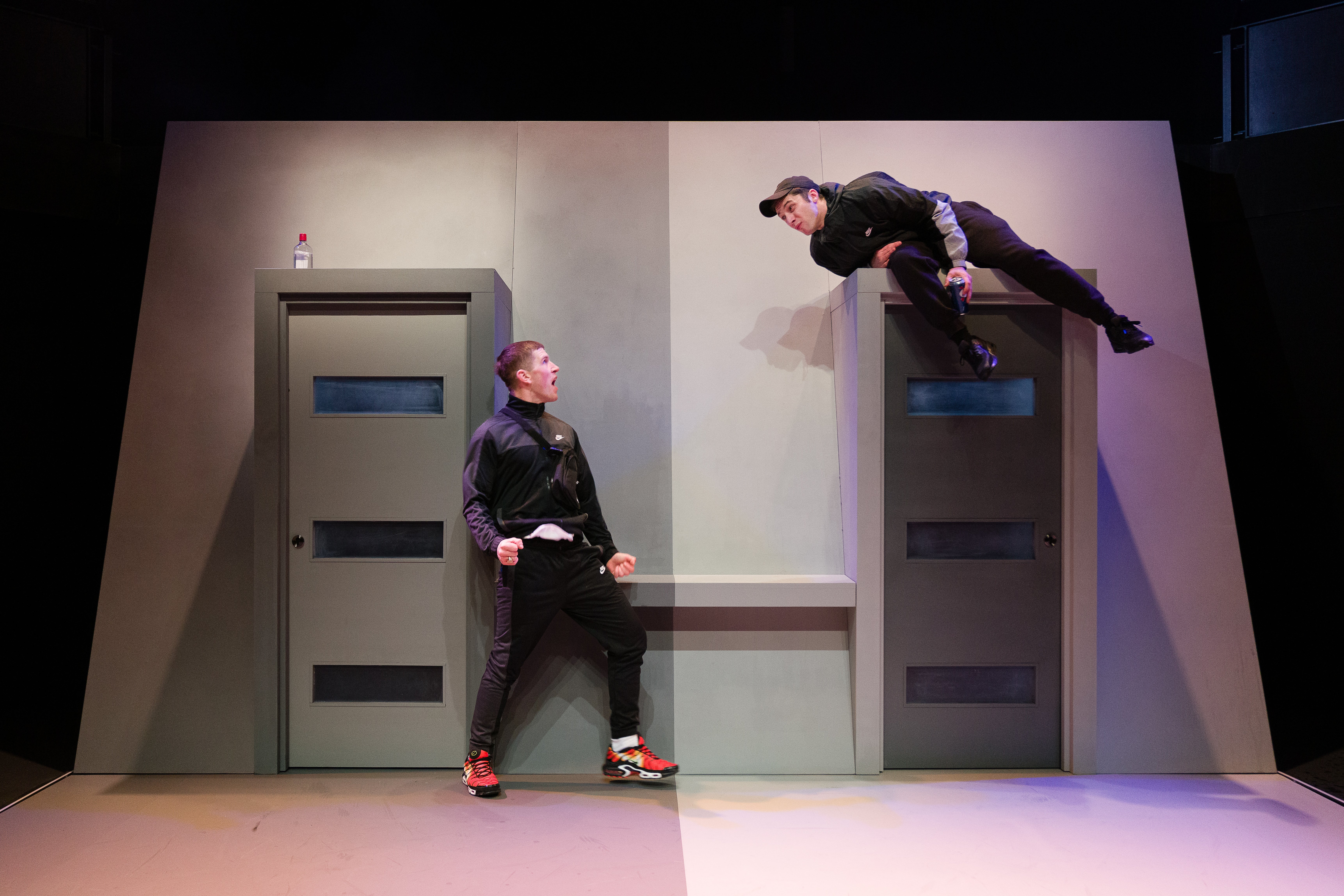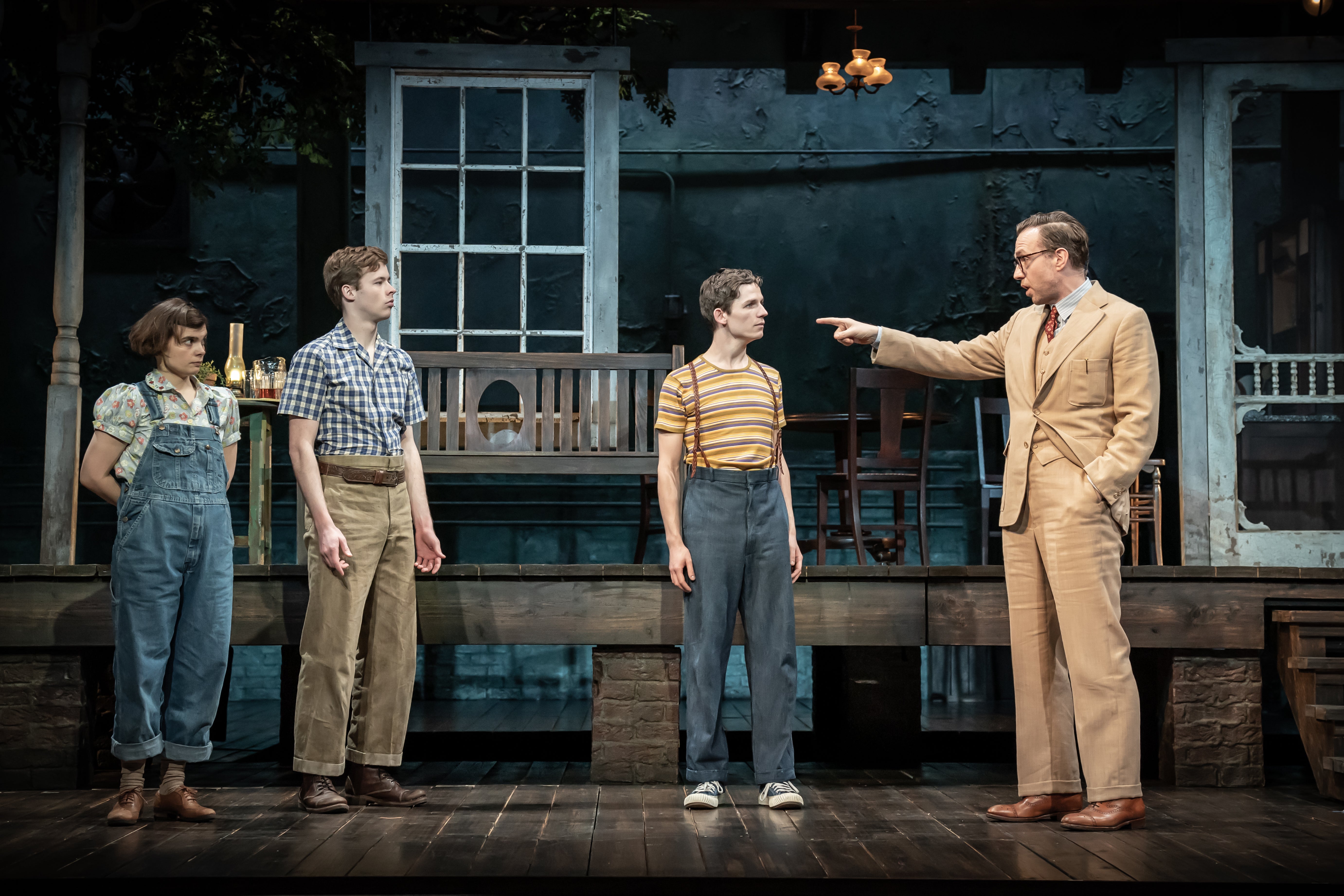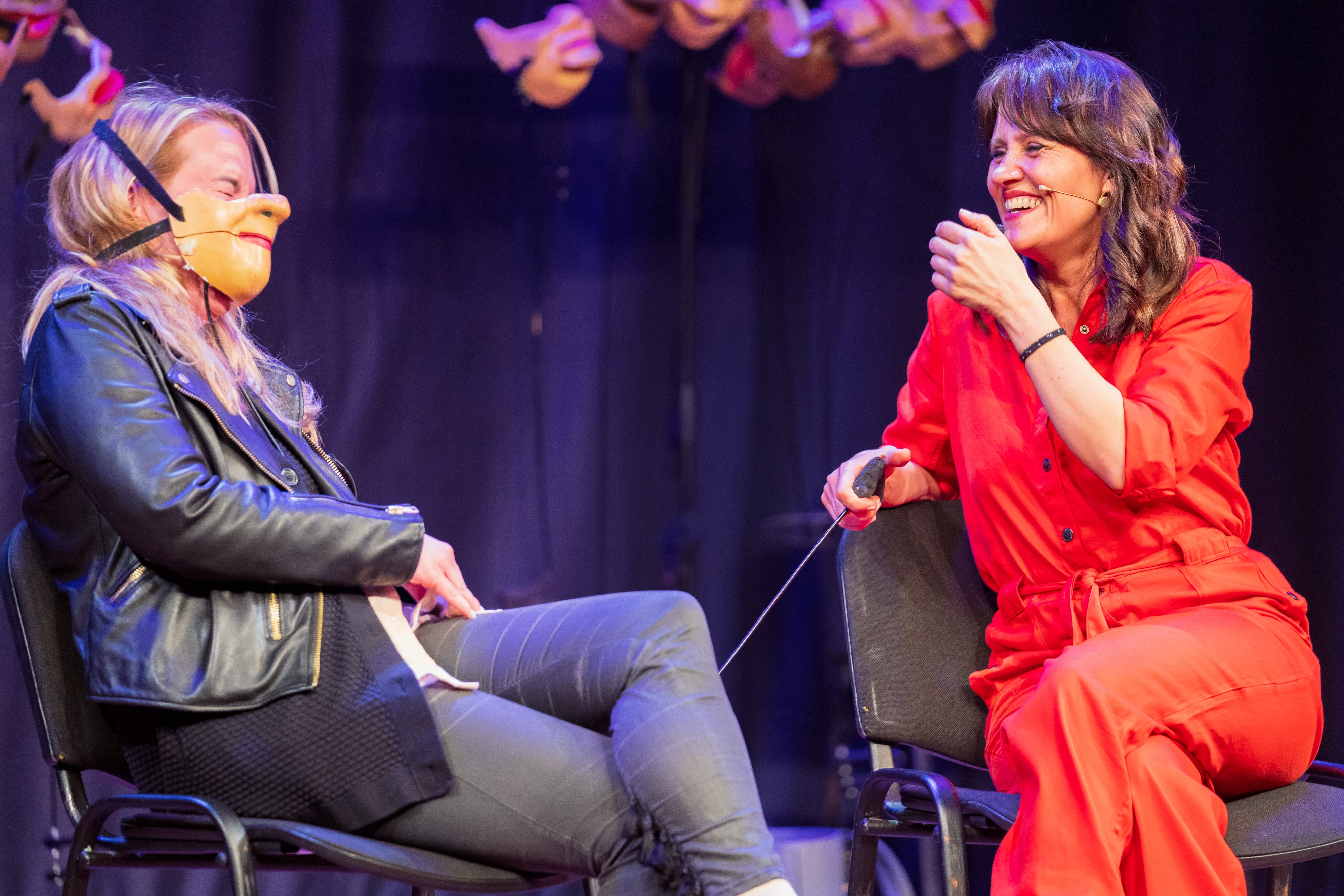The week on stage, from To Kill a Mockingbird to Sorry, You’re Not a Winner
The highs and lows of the week’s theatre

This week’s theatre includes Aaron Sorkin’s much-delayed To Kill A Mockingbird hitting the West End, a ventriloquist comedian and new writing from Paines Plough.
Check back next week for another cohort of productions, including Jeremy O Harris’s Daddy, Leeds Playhouse’s new adaptation of Hedwig and the Angry Inch, The Fever Syndrome and National Theatre Scotland’s Orphans.
Sorry, You’re Not A Winner – Bristol Old Vic ★★★★☆
For West Country lads Fletch (Kyle Rowe) and Liam (Eddie-Joe Robinson), life has always started and ended in Worcestershire. As Samuel Bailey’s new play for Paines Plough opens, the pair crouch atop concrete doors, on the cusp of adulthood. Liam is heading to Oxford University, while Fletch stays behind, clutching a scratch card.
We meet again three years later. That night, it turns out, was the point their paths diverged. Liam has traded his tracksuit for a coat and tails, the obligatory uniform at his end of university ball. “Why did you come here?” he asks uni friend George (Katja Quist) in a notably softened accent. “What, as opposed to Bristol or Durham or whatever?” she replies, voice well-meaning yet perfectly enunciated.

The relationship between Fletch and Liam is the beating heart of SYNAW. These are two friends who might as well be brothers, winding each other up and shooting back retorts in fast, funny dialogue. As Liam, you can see Robinson wriggle, a man caught between two places, uncomfortable in both. When Fletch shows up, freshly released from prison with only a JD Sports bag in tow, Liam looks like he wants the ground to swallow him up, his two distinct lives brought together uncomfortably.
Rowe, meanwhile, gives an astonishingly complex performance as Fletch. Violence for him is a way of showing affection, punches thrown when saying “I love you” would be met with casual homophobia. There’s an unhinged, seething energy to the character, Fletch running towards doors that are (literally) open to Liam, but shut for him. As metaphors go, it’s a little obvious, but it gets the point across. This is a man who sees the world as being against him – because it is. Isobel Lewis
To Kill A Mockingbird – Gielgud Theatre ★★★★☆
You probably know this story inside out. Harper Lee’s To Kill A Mockingbird is that rare book on a year 7 curriculum that sticks with you. The tale, told through six-year-old Scout, of her attorney father Atticus Finch defending Tom Robinson, a Black man accused of rape in Thirties Alabama, is not one easily scrubbed from memory. But it has been given a new focus in Oscar winner Aaron Sorkin’s stage adaptation, now on at Gielgud Theatre.
The differences are subtle but definitely there. Though the story remains filtered through the eyes of Scout, her brother Jem, and their friend Dill (played by adult actors Gwyneth Keyworth, Harry Redding, and a wonderfully zany David Moorst), it is in Rafe Spall’s Atticus that Sorkin finds his protagonist.

Spall – in his three-piece linen suit and purposefully messy hair – plays a less likeable Atticus than we’re used to. His pleas for the children to be “respectful” of their racist peers grows nauseating with each turn. What Lee holds up as a virtue in her book becomes a fatal flaw in Sorkin’s slight update. And so, although the notions of white saviourism remain, they feel less glaring underneath this harsher light.
A Sorkin production through and through, this adaptation feels undeniably Hollywood. That’s in large part thanks to the set: an impressively versatile collection of doors and stoops that rise and fall, appear and disappear to conjure up a courtroom, or a quaint dining room and everything in between.
All in all, Sorkin’s adaptation is superbly entertaining. And the biggest testament to that fact? I only noticed it was two-and-a-half-hours long after the show. Annabel Nugent
Nina Conti: The Dating Show – Arts Theatre ★★★★☆
Nina Conti is a great ventriloquist, but a not-so-great matchmaker. In The Dating Show, the comedian is determined to change that. Accompanied by her sweary puppet Monkey – who, quelle surprise, is a monkey – Conti brings (willing) members of the audience up on stage and makes them date each other. But there’s a catch. The lower halves of their faces are covered by grotesque, Spitting Image-esque lips, controlled by Conti.

The date segments of “the world’s first ventriloquial dating show” (as Conti calls it) are utterly hilarious. By her own admission, Conti’s not always great at remembering her participants’ names seconds after she’s been told them, but it only adds to the show’s charm. As scatty as she may pretend to be on stage, this is a comic at the top of her game. It goes without saying that Conti’s ventriloquist skills are second to none, as she gives her characters different accents, makes them sing and even at one point switches voices with Monkey.
Yet in The Dating Show, it’s Conti’s improvisational ability that truly shines through. She returns after the interval dressed as Monkey (mildly terrifying suit and all) and speed dates members of the audience. Even the presence of two under-15s among her participants doesn’t throw her off (although perhaps sans mask, we’d see the dawning realisation of all the C-bombs and fisting jokes flash before her eyes). “They were very lovely and now they’re scarred,” she tells the audience. Scarred in the best kind of way, I’d say. Isobel Lewis






Join our commenting forum
Join thought-provoking conversations, follow other Independent readers and see their replies
Comments